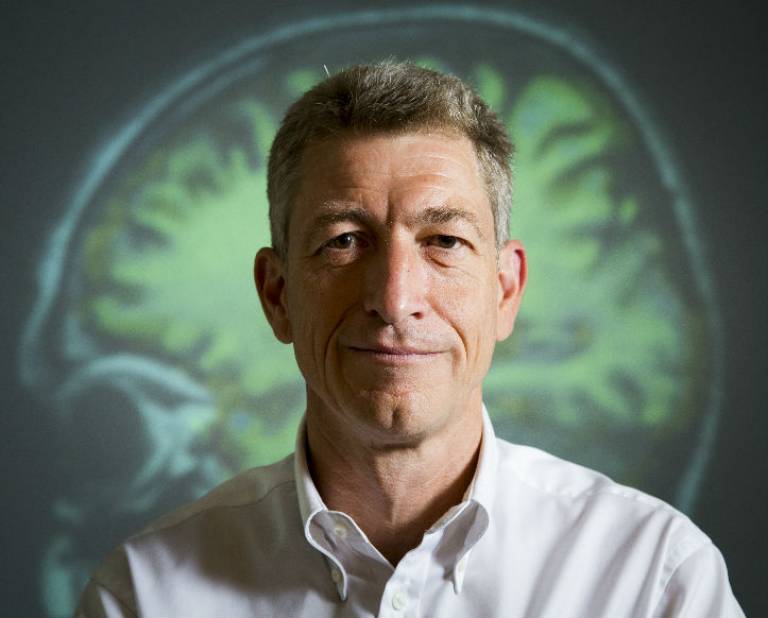Building an institute for the future

1 January 1970
Here's a scary statistic. For every £10 that dementia currently costs society - from the NHS to residential care - just 6p goes on research into what causes the disease, and what might cure it.
That's not acceptable, says Nick Fox, professor of neurology at University College London (UCL). And it's why he's so excited to be heading UCL's plans to build the UK's first Dementia Research Institute (DRI), funded partly by the money raised when we buy carrier bags from supermarkets. It's a chance to really make a difference.
"We have this huge burden on society, which is putting a devastating strain on patients, on individuals who care, and the health and social services. And that's just managing the problem, rather than solving it," he says. "That's what we want to change."
Working together to solve the problem
Dementia is certainly a big problem to solve. It costs the UK around £26bn a year - more than heart disease and cancer combined. Around 850,000 people in the UK have it, and that number is predicted to rise to a million by 2025. Although there have been advances in understanding the diseases that cause dementia there is still no cure and no treatments that can slow or prevent it.
That's where the DRI comes in. Fox's vision is for an institute which will have everything it needs to fight one of the biggest medical challenges of the 21st century - from the most up-to-date brain scanners and imaging equipment to cutting-edge laboratories for experimental medicine, and wards for patients who want to help trial the very new therapies that are being developed in those labs. The centre will be based at University College London (UCL), with Fox and his team aiming to have it up and running by 2019.
Why is it so important to have all this going on in one place? "There's so much incredible research already going on at UCL - but at the moment, we've got lots of small groups all scattered around, working on different things," Fox points out.
"Advances in science happen when you bring people who all have different but complementary skills together in the same place. They exchange ideas when they're passing each other in the corridor, or chatting to each other in the queue for coffee.
"And we'll bring in other disciplines, too. The Institute will attract the best biologists from fields like cancer, where great progress has been made, and the best engineers and computer scientists to help us advance in technologies like imaging."
Fox has spent his life studying dementia. He specialises in using technology such as brain imaging to try and find changes in the brain caused by dementia, long before the disease actually shows itself.
"We now think that dementia takes a long time to show symptoms - it may be from ten to 15 years," he says. "That means there's a very important period where we could detect the disease and, in theory, we could intervene to slow it while people are still functioning perfectly well. At the moment, we treat it at a very late stage where you can't reverse the damage.
"Like most other diseases, if we can give treatments early, we are likely to have a much better chance of a good outcome. And if we could delay the onset of dementia symptoms for five years, we'd halve dementia cases in the UK."
It's dementia's turn
The time has come, Fox says, for everyone to pull together and beat dementia. He's inspired by the example of HIV/AIDS. When it was first diagnosed, there was no knowledge about the disease, and no research centres and no treatments. But within 30 years of the disease first being identified, the global determination to do something about it means that we now have very effective drugs to treat it - for a previously untreatable disease - that is what we need to do in dementia
"Dementia is a major problem which has been neglected," he says. "We can't wait for treatments to gradually evolve over decades. We have to transform things. We face the most significant challenge of our age. We can and will do something about it - and we need everybody to support it."
 Close
Close


